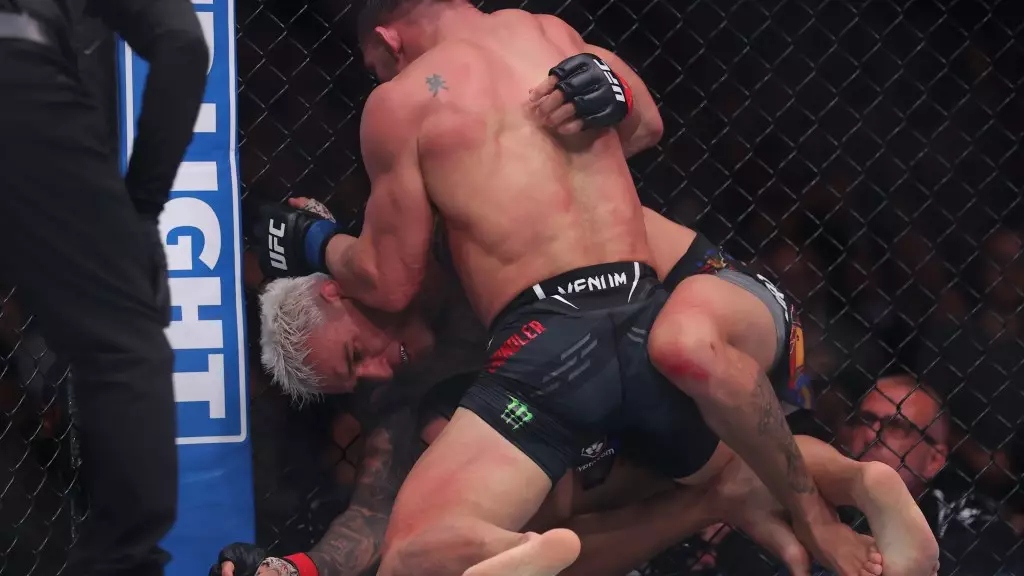In the electrifying co-main event of UFC 309 at Madison Square Garden, Charles Oliveira showcased his prowess against Michael Chandler, dominating the bout primarily through superior grappling and ground control. With five successful takedowns and nearly 15 minutes of control time throughout the five rounds, Oliveira appeared to have a significant edge as the fight progressed. His ability to neutralize Chandler’s striking power with effective grappling was a testament to his skills and preparation, reinforcing his status as one of the premier fighters in the lightweight division.
However, the latter stages of the fight brought forth a dramatic turn when Chandler, known for his resilience, launched a late onslaught that almost turned the tide. As the fifth round progressed, it was apparent that Chandler was desperate to finish the fight, landing aggressive strikes that seemed to severely test Oliveira’s fortitude. This late-game urgency may have contributed to some questionable tactics, which would later fuel Oliveira’s post-fight concerns.
Concerns Over Officiating: A Call for Accountability
After the fight, Oliveira expressed his dissatisfaction with the officiating, directing particular criticism at referee Keith Peterson for failing to address multiple illegal blows and infractions that occurred during the bout. “You know, I’m not here to criticize, but…” Oliveira lamented in a post-fight interview, highlighting that there were significant instances of strikes to the back of his head, along with other violations, including fence grabs and apparent eye pokes. This statement underscores the importance of referee awareness and intervention in ensuring the safety and integrity of all competitors in the octagon.
Oliveira’s frustration reflects a growing sentiment among fighters regarding officiating standards in UFC bouts, prompting discussions on the necessity for increased accountability and training for referees. As each fight unfolds, the referee plays a crucial role in maintaining fair play and protecting fighters from unintended harm. With stakes as high as championship titles and fighter safety, it is imperative that referees are attentive and responsive to the actions within the octagon.
The Road Ahead: Looking Towards Future Fights
Despite the controversy, Oliveira managed to return to winning form after a previous setback against Arman Tsarukyan at UFC 300. This win could potentially set the stage for Oliveira to compete for the title against the winner of the anticipated rematch between lightweight champion Islam Makhachev and Tsarukyan. His call for a title shot post-fight indicates his ambition to reclaim his position at the top of the division and highlights the competitive nature of the lightweight class.
While Oliveira’s performance at UFC 309 showcased his significant skills and ability to dominate, the accompanying officiating issues raise critical questions about the integrity of competitive fighting. As Oliveira looks toward future opportunities, both he and his fans are left hoping for an environment in which athleticism and performance are upheld by the highest standards of officiating.

